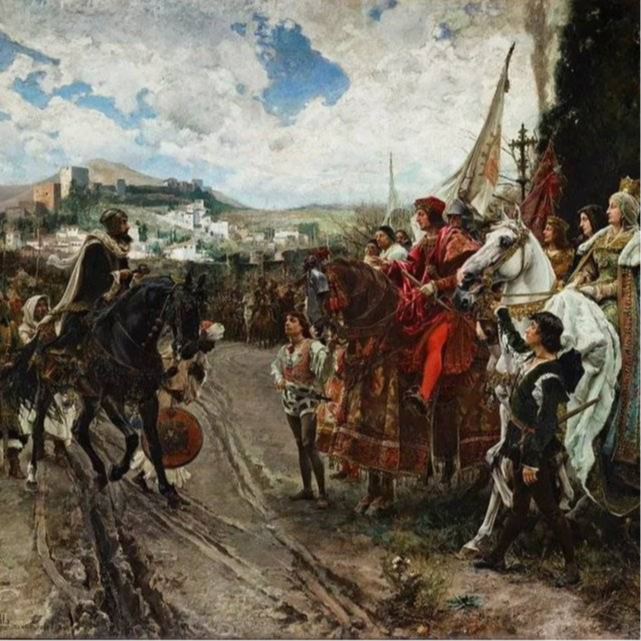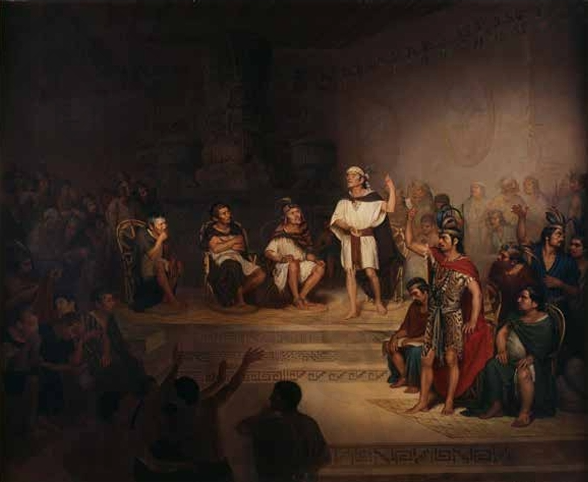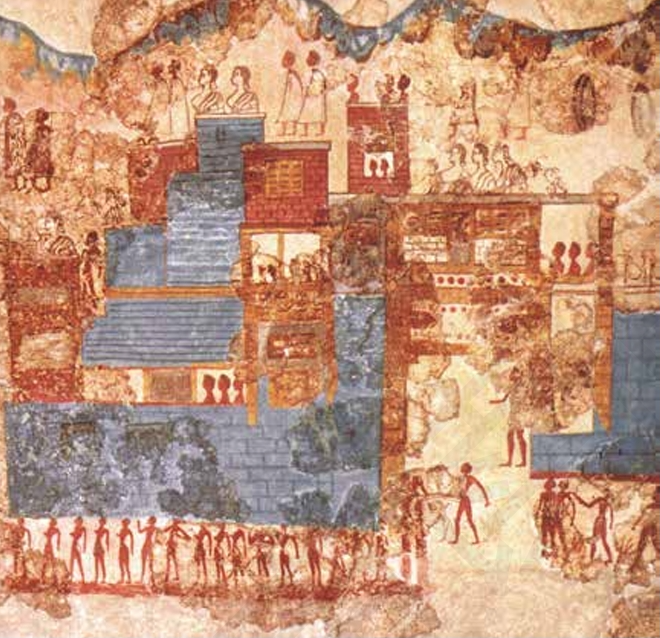
无政府主义真的可行么?与李厚辰聊人类历史的另一面 | 以读攻读

深焦DeepFocus Radio
Deep Dive
Why does David Graeber's concept of 'bullshit jobs' resonate with many people today?
Graeber's concept of 'bullshit jobs' resonates because it critiques modern work culture, particularly in the context of 996 work schedules and widespread dissatisfaction with jobs that seem to lack real value. He argues that many jobs exist solely to fulfill unnecessary demands or solve created problems, rather than contributing meaningful value to society.
What is the main argument in 'The Dawn of Everything' regarding human history?
'The Dawn of Everything' challenges the traditional narrative of human history, arguing that it is not a linear progression from simple to complex societies. Instead, it highlights the diversity and experimentation in early human societies, suggesting that they were far more complex and varied than previously thought.
How does 'The Dawn of Everything' challenge the Western-centric view of history?
The book critiques the Western-centric view by showing that many societies outside Europe developed in ways that did not follow the European trajectory. It argues that the Western model is not the only or inevitable path for human development, and that other societies experimented with diverse political and economic systems.
What role does agriculture play in the traditional narrative of human history, and how does 'The Dawn of Everything' dispute this?
Traditionally, agriculture is seen as a key turning point that led to complex societies and inequality. However, 'The Dawn of Everything' argues that agriculture did not immediately transform human societies or lead to hierarchy. Early humans combined farming with hunting and gathering for a long time, and the shift to purely agricultural societies was more gradual and less deterministic than often assumed.
Why does David Graeber identify as an anarchist, and how does this influence his work?
Graeber identifies as an anarchist because he critiques centralized authority and hierarchical systems, advocating for more decentralized and community-based forms of organization. This perspective influences his work by challenging conventional narratives about the inevitability of states and bureaucracies, and exploring alternative ways societies can be organized.
What evidence does 'The Dawn of Everything' provide to challenge the idea that cities led to monarchy and bureaucracy?
The book uses archaeological evidence to show that early cities did not necessarily have hierarchical structures or centralized authority. Instead, they often functioned as seasonal gathering places for rituals and communal activities, rather than being centers of political power or economic control.
How does 'The Dawn of Everything' reinterpret the concept of 'natural state' in human history?
The book rejects the idea of a single 'natural state' for humans, arguing that early societies were highly diverse and experimented with various forms of organization. It challenges the binary view of 'savage' versus 'civilized' societies, showing that early humans were capable of complex political and economic arrangements.
What is the significance of the 'intermediate zones' in Graeber's reinterpretation of human history?
Graeber emphasizes the importance of 'intermediate zones'—regions and societies that existed outside the dominant Western narrative. These zones often developed unique political and economic systems, challenging the idea that Western models of development are universal or inevitable.
How does 'The Dawn of Everything' address the role of technology in shaping human societies?
The book argues that technological advancements, like agriculture, did not have the deterministic impact often attributed to them. Instead, it suggests that social and political factors played a more significant role in shaping human societies, and that technology was often adapted to existing social structures rather than driving change.
What does Graeber's anarchist perspective suggest about the future of human societies?
Graeber's anarchist perspective suggests that societies can and should explore alternative forms of organization beyond centralized states and bureaucracies. He highlights examples of small-scale, community-based systems that functioned effectively, advocating for a return to more decentralized and participatory forms of governance.
- 人类学研究视角的局限性
- 西方中心主义对人类社会演化理解的影响
- 对非西方文明多样性和复杂性的认识不足
Shownotes Transcript
很少有学者像大卫·格雷伯一样在普通大众之中拥有如此大的影响力。他是占领华尔街运动的主要发起人,也是那本著名《狗屁工作》的作者。他有着强烈的无政府主义倾向,习惯于批判当代的官僚制度和资本主义体系。最可贵的是他并非一个坐在书斋中的学者,而是身体力行地参与到各种社会实践活动之中。
在格雷伯离世四周年之际,我们终于等来他的遗作,与英国考古学家大卫·温格罗合著的《人类新史》。
思索人类社会的命运时,我们总会借助大历史的广角镜头。可耳熟能详,甚至被默认为公理的人类发展叙事——从人人平等的狩猎采集小游群到现代民族国家,历经“农业革命”“城市革命”“国家起源”等关键节点——真的反映了事实吗?《人类新史》向我们揭示出,这或许只是一个现代版本的起源神话。
本期节目我们要来聊一聊这本颠覆性的大历史作品,看看格雷伯想要怎么更改我们的认知,塑造一种全新的人类发展的历程。

点击此处,可直接订阅深焦播客子节目《以读攻读》

嘉宾:
李厚辰
翻转电台主播
微博@翻电GPT 小宇宙:翻转电台
黄哲成
有趣而无用的人做着有趣而无用的事
豆瓣 @hzcneo

大卫·格雷伯
时间轴:
00:03:16 大卫·格雷伯的学术经历与无政府主义的政治立场
00:08:12 格雷伯“狗屁工作”的观点是否过于简化
00:14:39 人类学的研究视野是什么
00:22:21 《人类新史》中对于经典的“人的自然状态”论述的否定
00:29:08 农业技术的发展与人类社会的演变之间的关联
00:33:32 《人类新史》打破了城市,君主制与官僚系统的因果关系
00:38:10 “西方中心主义”的历史观忽略了历史上的中间地带
00:45:16 无政府主义何以成为一种可能
00:58:45 大历史书籍的畅销与我们的时代遇到的问题息息相关

历史绘画《特拉斯卡拉议事会》(Rodrigo Gutiérrez绘,1875)
涉及作品:
大卫·格雷伯/大卫·温格罗 《人类新史》
大卫·格雷伯《狗屁工作》
大卫·格雷伯《债:5000年债务史》
大卫·格雷伯《无政府主义人类学碎片》
E.E.埃文思-普里查德《努尔人》
列维-斯特劳斯《忧郁的热带》
皮埃尔·克拉斯特《瓜亚基印第安人编年史》
卢梭 《论人类不平等的起源和基础》

米诺斯城市阿克罗提利的壁画局部,展现了生动的城市生活场景
外延阅读:
大卫·格雷伯:民主并非起源于西方,而是来自“中间地带”(上)
大卫·格雷伯:民主并非起源于西方,而是来自“中间地带”(下)

夸扣特尔面具舞者(Edward S. Curtis摄,1907)
本期使用音乐:
开场:Sid Meier'sCivilization VI (Guitar)
结尾:Gealdýr——Baldr
制作团队
监制:Peter Cat
统筹:黄哲成
策划:黄哲成
剪辑:黄哲成
编辑:黄哲成